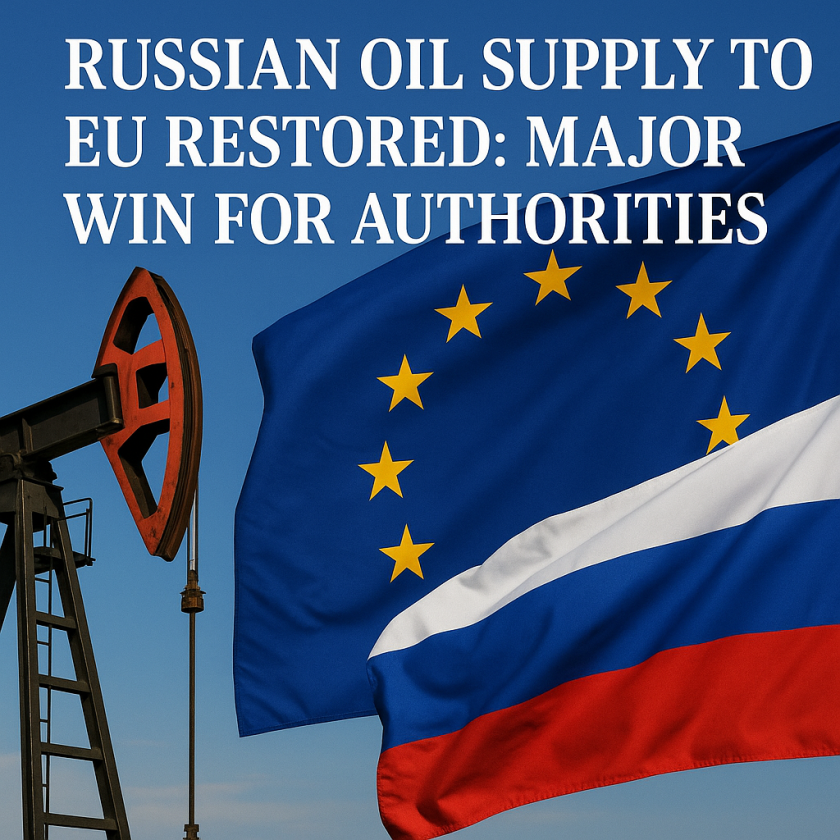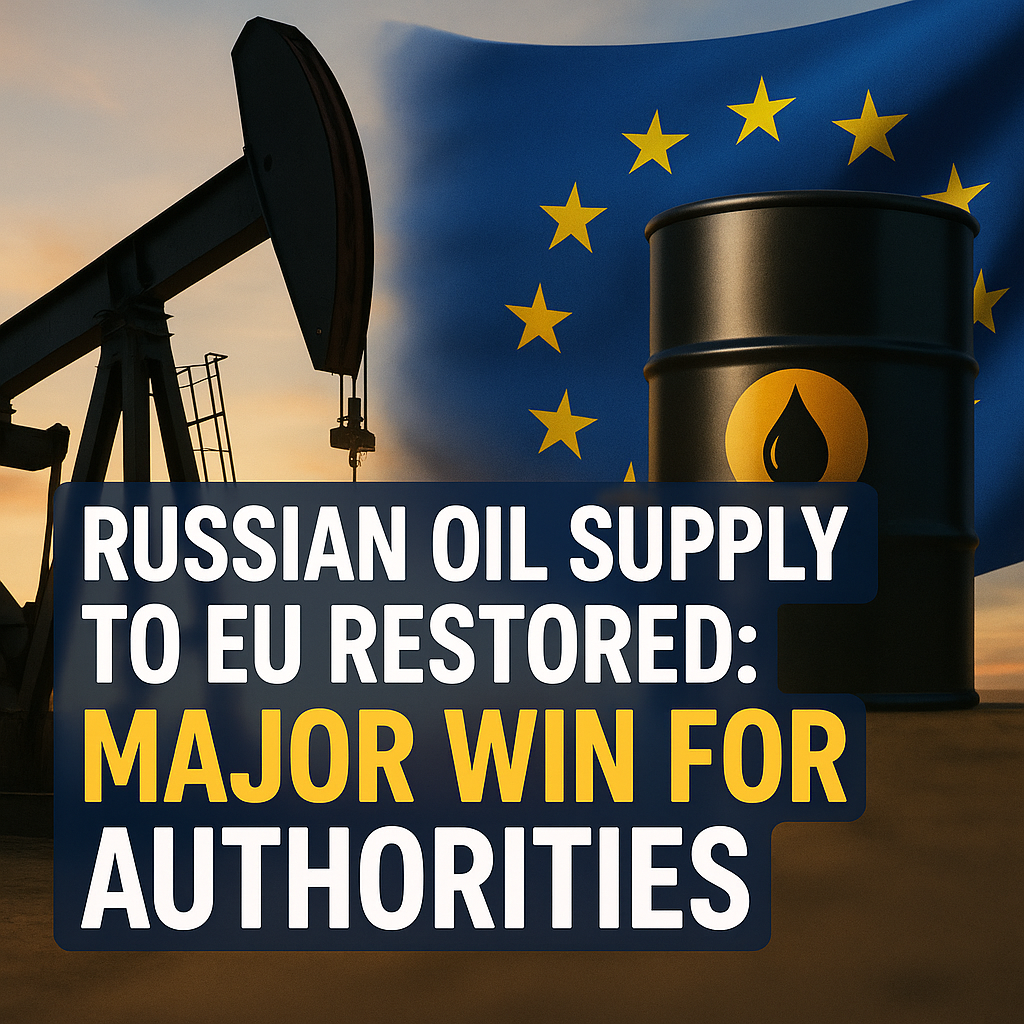Russian Oil Supply to EU Restored: Major Win for Authorities
Russian Oil Supply to EU Restored: Major Win for Authorities
The restoration of the Russian oil supply to the European Union marks a significant turning point in geopolitical relations. This development not only reshapes energy dynamics but also reflects broader economic interests amid ongoing global tensions.
Overview of the Restoration

Recently, Russia’s oil supply to the EU has been reinstated after interruptions affected several key pipelines, particularly due to conflicts linked to the war in Ukraine. The Druzhba pipeline, a crucial artery for Russian oil traversing Central and Eastern Europe, has resumed operations after being temporarily halted due to repairs and geopolitical tensions. The restoration is framed by various narratives, each underscoring different implications of this event.
Economic Implications and Energy Dependency
From an economic perspective, restoring oil supplies helps mitigate energy shortages in the EU, especially during periods of rising prices and winter demands. European nations have consistently grappled with energy dependency on Russia, a reality that became starkly apparent during the early stages of the Ukraine conflict.
Reports indicate that countries like Hungary and Slovakia, reliant on the Druzhba pipeline, are particularly relieved by the resumed flow. Their economies face less immediate pressure, providing them room to maneuver politically without the threat of an acute energy crisis. However, critics argue that this dependency risks entrenching the EU’s reliance on Russian resources, complicating efforts to diversify energy sources.
In contrast, there are voices advocating for diversifying supply chains and investments in renewable energy. As highlighted in various analyses, a continued reliance on Russian oil runs counter to EU ambitions of energy independence and sustainability. The tensions may lead to a clash of priorities as nations weigh short-term needs against long-term strategies for energy security.
Geopolitical Repercussions
The geopolitics surrounding the restoration of oil supplies cannot be understated. Analysts observe that Russia’s ability to recommence oil exports reinforces its position in the European energy market, thereby emboldening its negotiating stance in international relations. This development could reshape alliances as countries assess their energy needs against their geopolitical alignments.
On the flip side, the EU may respond with increased sanctions or diplomatic efforts aimed at pressuring Russia further. A delicate balance ensues: while immediate energy needs might dictate support for Russian oil, longer-term strategies must consider the broader implications of empowering Russia by maintaining economic ties.
Some experts assert that this restoration signals not just an end to temporary disruptions but also a potential recalibration of relationships across Europe. For instance, nations less reliant on Russian oil might shift towards advocating for a unified sanctions policy, while those more dependent may face internal schisms over how to navigate their energy strategies.
The Counterpoint: Climate and Sustainability Concerns
Amidst these developments is the urgent discourse around climate change and sustainability. Many environmental advocates argue that the restoration of Russian oil supply is a step backwards, jeopardizing progress towards green energy transitions. They point out that the reliance on fossil fuels, particularly those sourced from geopolitically unstable regions, undermines the EU’s commitments to climate goals.
As countries like Germany and France push for increased reliance on renewable energy, further discussions are likely to emerge regarding how to balance immediate energy demands with commitments to reduce carbon emissions. The contrast between immediate economic incentives and long-term sustainability objectives creates a unique challenge for policymakers.
Looking Ahead: A Complex Future
The future of Russian oil supply to the EU remains uncertain, shaped by ongoing geopolitical dynamics, domestic pressures within EU member states, and the broader push towards sustainability. While authorities tout this restoration as a win, the complexities of energy dependency, geopolitical alliances, and climate obligations will continue to push leaders to tread carefully.
Ultimately, stabilizing energy supplies while respecting the urgent need for climate action presents a formidable challenge. The narrative surrounding the restoration of Russian oil supply will evolve, shaped by both immediate and long-term interests. It is through this lens that observers will need to analyze subsequent developments, with an awareness of the multifaceted implications at play.
The restoration stands not only as a point of immediate relief for energy markets but also as a reminder of the intricate weave of economics and geopolitics that defines modern energy landscapes. In a world increasingly defined by its energy dependencies and climate challenges, the path forward remains complex and fraught with potential repercussions.




































